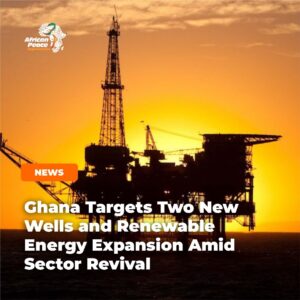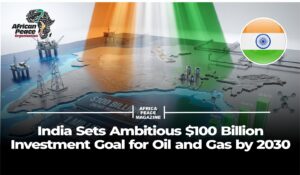Ghana Targets Two New Wells and Renewable Energy Expansion Amid Sector Revival
Ghana is positioning itself for a significant energy sector comeback, with the Ghana National Petroleum Corporation and its subsidiary Explorco expressing interest in drilling two new wells in the Voltain Basin by the end of the third quarter of 2026. The announcement comes as President John Dramani Mahama outlines ambitious plans to revitalize the country’s struggling oil and gas industry while simultaneously pursuing renewable energy goals.
The West African nation has secured $3.5 billion in upstream petroleum investments and committed to achieving a 35% renewable energy mix by 2025, according to Energy and Green Transition Minister John Abdulai Jinapor. This dual approach reflects Ghana’s strategy to boost investor confidence in traditional hydrocarbon resources while building foundations for a greener economy.
Ghana’s petroleum sector has faced significant challenges since its oil boom following the 2007 discovery of commercial quantities in the Jubilee fields. Production declined sharply from a peak of 71.44 million barrels to 48.25 million barrels in 2024, with Ghana Statistical Service data showing oil and gas activity fell 22.5% year-on-year, marking five consecutive years of upstream sector decline.
President Mahama emphasized the government’s commitment to creating an investment-friendly environment that balances investor expectations with national interests. “When I took office in January, we immediately signaled to the investment community that Ghana’s upstream sector is open once again for business,” he stated.
The government is reviewing the Petroleum Exploration and Production Act of 2016 to align legislation with evolving global trends while positioning Ghana as a regional petroleum hub. Minister Jinapor stressed that Africa’s energy transition must balance development with sustainability, noting that while Africa holds 125 billion barrels of oil and 620 trillion cubic feet of natural gas, more than 600 million Africans remain without electricity.
“Our transition cannot be one that sidelines development or deepens poverty,” Jinapor declared, insisting that climate change discussions must prioritize Africa’s development needs. President Mahama’s decision to expand the ministry’s mandate to include Green Transition is already attracting global energy companies seeking stable partnerships in Africa.
Sources: ceditalk.com, gbcghanaonline.com





